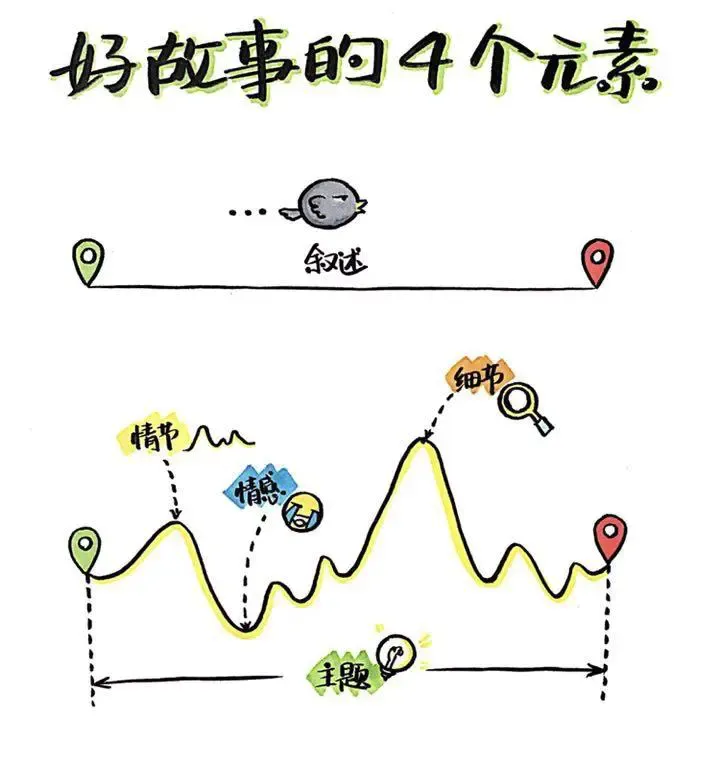每周3-2-1:持續學習,保持適應,常保青春
3-2-1: Outsmarting yourself, staying adaptable, and choosing more empowering self-talk
原文出處: https://jamesclear.com/3-2-1/october-20-2022
3 Ideas From Me
I. "Stop learning, die young. Keep learning, stay young."
老狗學不了新把戲,是因為狗老?還是因為不學?
上面這個想法提供很好的想法!
不持續學習成長,而在原地踏步,就跟死了沒兩樣。
記得幾年前有個段子:很多人年輕時就已經死了,只是老了才下葬!
🧿 試著每個月有一個學習主題,拓展自己的習慣領域! 本月剛領Aptos空投,就以Aptos生態發展當作下個月的學習主題吧!!
II. "One of the great gift of sports is learning how to fail in public. People never go to the gym because they're scared of looking stupid, never share their writing because they're scared of judgment, never open their heart because they're scared of rejection. Sports train you to face your fear."
正視失敗是需要訓練的,人都不喜歡失敗,導致於失敗時會刻意遺忘,而牛人就是那些可以正視失敗,甚至更厲害的是可以把別人的失敗當成自己的失敗來學習的。
運動是個可以讓人學習失敗的場所,挺有趣的觀點,至少在這之前,我只是把運動當作健身,或許是我從沒參加過甚麼正式的運動競賽吧!
最正式的,大概就是龍舟拔河! 儘管如此,我還是抱著玩票的心理參與。
或者該說,我好像都抱著玩票的心態在看輸贏這件事 🙄
III. "The mind is alive when it is flexible and adaptable. It can be updated, take new form, endure change. The mind is dead when it is fixed and immovable. It cannot absorb new ideas or thoughts. It is stiff and brittle. When we lose our ability to adapt, to move with the environment, to tolerate new beliefs and reshape our old ones, our mind is at risk of becoming outdated. The fixed mind becomes a relic."
有能力適應,就是可以活下去! 反過來說,只要僵化,就跟死了沒兩樣,身體是這樣,大腦也是這樣。隨時願意接受新的信息,了解新的事物,看到相同與不同之處,並加以延伸,這樣才能夠持續的"活"。
🧿像個變形蟲一樣,不斷變化的活下去!
2 Quotes From Others
I. Writer and former heavyweight boxer, Ed Latimore, on outsmarting yourself: "Someone with half your IQ is making 10x as you because they aren't smart enough to doubt themselves."
Source: Twitter
IQ只有你一半的人,卻可以產出你10倍效益,因為他們不夠聰明而無法使自己倍增?!
這句引言,說真的,我看不大懂! 應該是要表達勤能補拙吧?! 🤔
II. Wisława Szymborska, poet and recipient of the 1996 Nobel Prize in Literature: "Any knowledge that doesn't lead to new questions quickly dies out: it fails to maintain the temperature required for sustaining life."
Source: The Poet and the World
看完這引言,我直覺想到笛卡爾的我思故我在。

思考是對事物與感覺的探索,而笛卡爾在講出我思故我在這句話的時候,他是在想甚麼呢?
扯遠了。思考就是奠基在已有的知識上,透過已有的知識間產生的關聯,創造出對於問題的解法,回頭想想,國高中寫的數學題目,不就類似這樣嗎? 從已知的定理去推論未知的答案,進而發現新的經驗與知識。
1 Question For You
Without altering the facts of the situation I am facing and without ignoring the reality of what must be done, what is the most useful and empowering story I can tell myself about what is happening and what I need to do next?
好長一段話,講簡單一點,就是:面對當下,怎麼用好故事讓自己賦能與展望
好故事是重點,前幾年的黃金圈理論 "Start with WHY?",就是在探索為什麼的過程,逐漸形塑出一個可以從內而外打動人與激勵人的故事!
地球暖化就是一個醞釀十多年的寓言故事,儘管近幾年地球的極端氣候才讓人真的體會到全球暖化日益嚴重,進而推動下一段敘事,也就是"2050碳中和"。
故事的背後,是生存? 是政治角力? 是商業算計? 還是都有!?😏
好的故事,是需要學習並且不斷打磨,這點我覺得古典,在得到APP的超級個體課程講得相當不錯,我看這一段有人整理好,有興趣請參考 运用故事思维—Day211 得到学习 《超级个体》

喜欢我的作品吗?别忘了给予支持与赞赏,让我知道在创作的路上有你陪伴,一起延续这份热忱!




